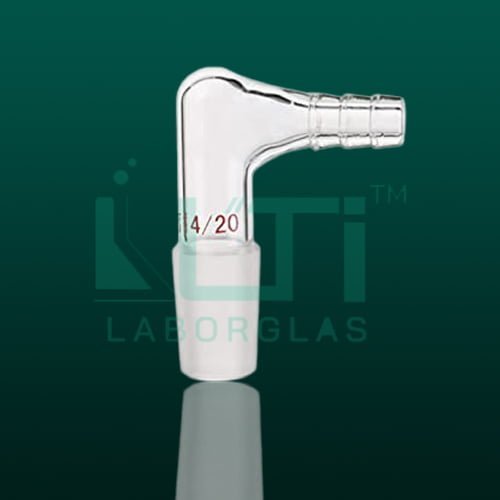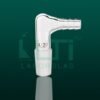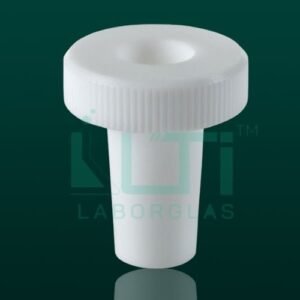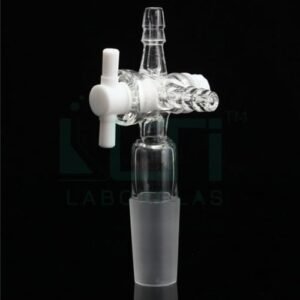Chemical Resistant
| Part No. | MALE Joint | House Connection O.D. inches | Pack QTY. |
| 2280-14 | 14/20 | 5/16 | 10 |
| 2280-19 | 19/22 | 5/16 | 10 |
| 2280-24 | 24/40 | 3/8 | 10 |
| 2280-29 | 29/42 | 3/8 | 10 |
| 2280-28 | 28/15 | 3/8 | 10 |
| 2280-35 | 35/25 | 3/8 | 10 |
Here are potential uses for such an adapter in a laboratory setting:
- Chemical Reactions:
- The 90° bend with hose connection can be used in chemical reactions to connect different glassware components at a right angle. The hose connection facilitates the introduction or removal of reagents.
- Distillation Setups:
- In distillation experiments, the 90° bend may facilitate the connection between the distillation flask and the condenser. The hose connection could be utilized for vacuum supply or inert gas introduction during distillation.
- Vacuum Filtration:
- The hose connection may be used for attaching a vacuum source, making the adapter suitable for vacuum filtration setups where a vacuum is required for the filtration process.
- Liquid Transfer:
- This adapter can be used for controlled liquid transfer between different glassware components, facilitating processes such as titrations, liquid-phase reactions, or transferring liquids between containers.
- Gas Inlet or Outlet:
- The hose connection may serve as a gas inlet or outlet, allowing for the introduction or removal of gases during reactions or experimental processes.
- Laboratory Plumbing:
- The adapter contributes to the laboratory plumbing system, providing a right-angled and flexible connection for hoses used in various experiments.
- Versatile Experimental Setups:
- The 90° bend with hose connection allows for flexibility in experimental setups, accommodating different laboratory configurations and facilitating hose connections for various purposes.
- Standardization:
- The use of adapters following certain standards, such as those set by ASTM, contributes to the standardization of laboratory procedures. This ensures compatibility and consistency in experimental setups.







